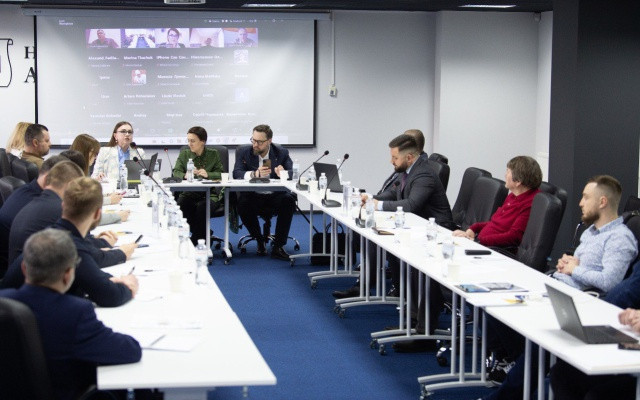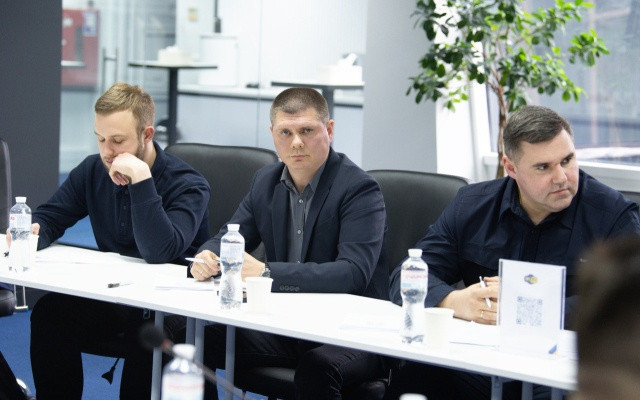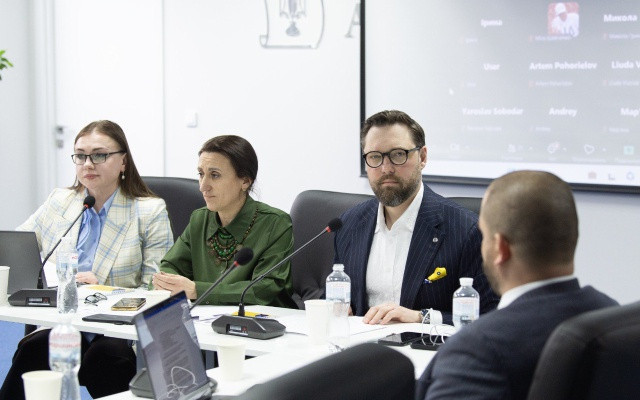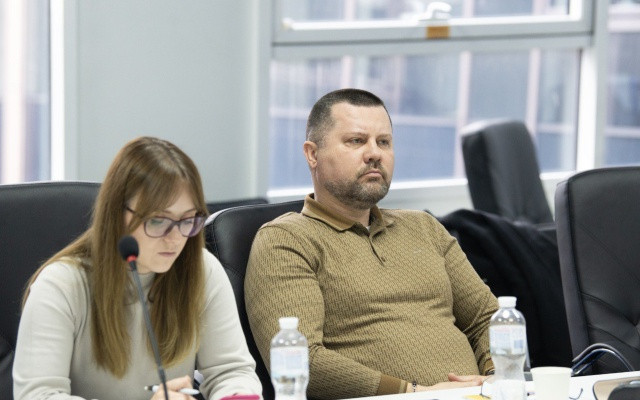
The role of advocacy in the country's information security was discussed at the round table




In today's war, disinformation has become one of the key instruments of influence used to destabilize the situation in the country, discredit institutions, including the bar, and manipulate public opinion.
The Ukrainian National Bar Association's Committees on Human Rights Protection and on Information Policy and Media Relations organized and held a roundtable discussion «Countering disinformation during martial law». The event was attended by lawyers, information security experts, academics and government officials.
The roundtable was moderated by the Committee Chairmen Hanna Kolesnyk and Oleksiy Shevchuk. Opening the discussion, H. Kolesnyk emphasized the critical importance of partnership between civil society and government agencies to combat information threats, and noted that the bar remains the guarantor of legal protection, including in the information sphere. O. Shevchuk emphasized that in the context of hybrid warfare, information security is a component of national security. And the bar community should play an active role in countering disinformation, shaping the legal culture of society and ensuring a transparent dialogue between the state, media and citizens.
The speakers focused on the legislative and practical aspects of countering disinformation, namely: the problems of spreading false information in the media space, legal ways to respond to challenges, issues of protecting the professional honor of lawyers in cases of public discredit, and inter-institutional cooperation for effective information protection of society.
During martial law, the threat of disinformation has become especially acute - it is spreading at a high rate and affects all spheres of life: legal, social, military, economic and political. This was warned by Oksana Polotnyanko, Head of the personal data protection and right to access to information Section of the UNBA Human Rights Committee, who initiated the roundtable. She noted that sometimes the consequences can be critical. For example, in cases where false or deliberately distorted information concerns decisions in the defense sector. The current legislation and actions of government agencies play an important role in countering this, but it is not enough. It is necessary to improve response mechanisms, increase media literacy, and create a unified information security system. Identifying sources of disinformation is especially important in the context of digitalization, when everyone has access to information and it can be disseminated by both individuals and legal entities.
The insufficient development of the legislative framework for protecting information and countering new threats is a serious problem. There is no concept of disinformation at the legislative level. A significant number of phenomena in the information space have not yet been classified and reflected in regulations, which makes it difficult to apply liability measures for any actions or organization of activities that may harm the information security of the Armed Forces and military personnel.
Thus, disinformation remains one of the important challenges facing states. A review of examples of disinformation confirms that its impact cannot be overestimated: it affects public opinion, elections, state and human security, health, life, career, etc.
And the development of information technology increases the risks of disinformation. With the help of algorithmic systems and artificial intelligence, fakes can be more convincing and targeted at the audience that is more likely to believe them.
In this regard, the international community is trying to develop new policies and recommendations to counter disinformation without violating the right to free expression.
Therefore, to effectively counter disinformation in Ukraine, it is necessary to improve legislation, implement European recommendations on improving media literacy, and develop institutions to combat disinformation.
Serhiy Lysenko, Director of the IAPM Security Institute, offered to join the work on the draft law «On the National Agency for Information Security and Cybersecurity of Ukraine», which provides for the creation of a specialized executive body with the status of a central body authorized to formulate and implement state policy in the field of information and cybersecurity. According to the scholar, the law should become a key tool in countering disinformation, cybercrime, and threats to information security.
Other speakers shared their experience, thoughts, and professional vision of information threats during martial law. They emphasized the need to establish sustainable communication between the bar, media and government institutions to ensure transparency, trust and protection of human rights in the information space.
The event ended with a joint conclusion about the need to continue the dialogue, deepen cooperation between professional communities and expand opportunities for the protection of human rights in the context of hybrid aggression and to start working on amendments to the legislation, for which it was decided to create a working group for further cooperation. Thus, the roundtable became not only a platform for exchanging views, but also a step towards building a strong community of lawyers capable of protecting not only individuals but also the country's information space.
© 2025 Unba.org.ua Всі права захищені
"Національна Асоціація Адвокатів України". Передрук та інше використання матеріалів, що розміщені на даному веб-сайті дозволяється за умови посилання на джерело. Інтернет-видання та засоби масової інформації можуть використовувати матеріали сайту, розміщувати відео з офіційного веб-сайту Національної Асоціації Адвокатів України на власних веб-сторінках, за умови гіперпосилання на офіційний веб-сайт Національної Асоціації Адвокатів України. Заборонено передрук та використання матеріалів, у яких міститься посилання на інші інтернет-видання та засоби масової інформації. Матеріали позначені міткою "Реклама", публікуються на правах реклами.